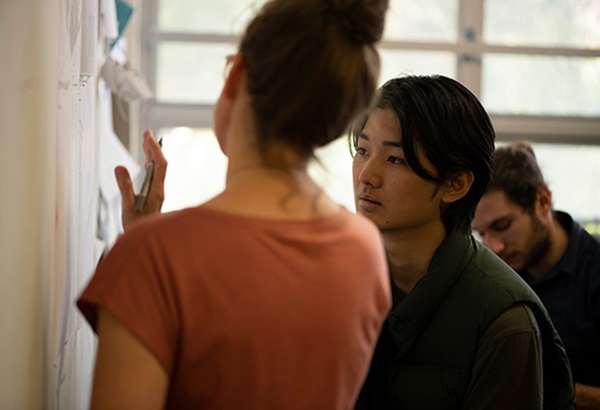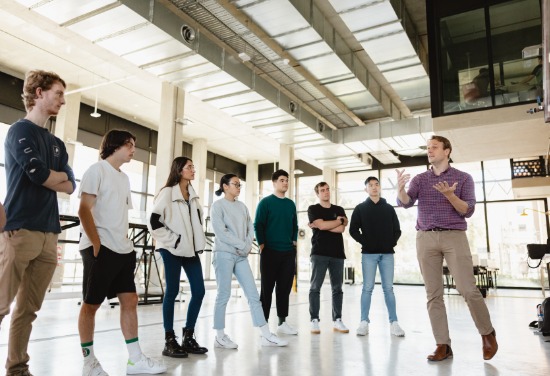We're proud of our incredible community of more than 130,000 UWA alumni. Their global impact is immense – whether it be in treating patients in regional areas, creating not-for-profit organisations or progressing health outcomes through life-changing research.
Hear from our Health and Biomedical Science graduates, pushing new boundaries and taking their UWA knowledge further into impactful careers.
Using Human Centred Design Thinking to solve ‘wicked problems’
"Currently I work at the Innovation Hub at Royal Perth Hospital. I work with clinical and non-clinical health staff to identify and unpack diverse challenges, many of them a classical ‘wicked problem’. We work with the clinical technical expertise and apply international best practice innovation techniques to develop solution ideas which we can trial across the hospital as small-scale ’protype projects’.
Human Centred Design Thinking, which is one of the most dominant innovation frameworks, is concerned with reverse engineering solutions to wicked problems through empathizing with the end users. Social Work provided the perfect springboard for me to embrace this model of problem solving, having comprehensively trained me in person-centred practice.
I also hold the volunteer role as CEO at my not-for-profit, Hello Initiative. This role requires me to liaise with hugely diverse groups and communicate at both a high level with senior executives and government officials, but also clients and young people. Social Work taught me how to communicate with empathy, as well as the enormous value of co-design in social impact innovation.
In 5 or 10 years time I would like to run my own innovation consulting firm, specialising in social impact innovation. I want to help big organisations and governments solve their toughest wicked problems through new approaches and community co-design. There are so many problems out there just waiting to be solved!"
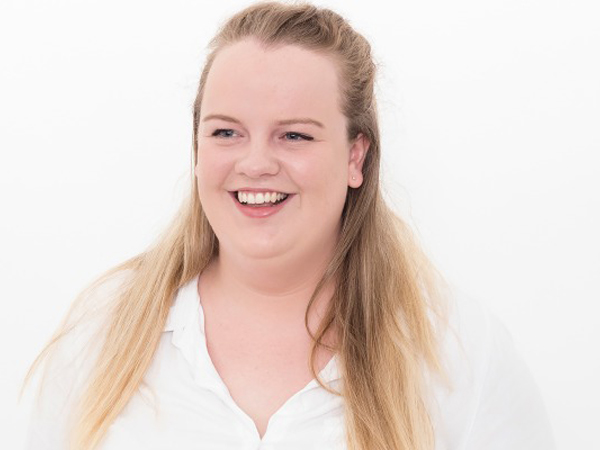
Ashleigh Small
Master of Social Work
Researching into youth suicide prevention
“I wanted to study medicine, but then had exposure to research and decided that I wanted to devote my life to ‘bigger picture’ issues and change, rather than one-on-one clinical work. In discussions with one of my undergraduate lecturers I realised that the Master of Public Health (MPH) was a good option for me.
I met so many amazing like-minded students during my master’s degree. I also felt that all of the teachers were so knowledgeable and approachable, and I felt so supported by the School of Population and Global Health throughout my MPH.
I am passionate about the research I do, so I hope that I am able to continue building on the research that I am doing in youth suicide prevention for the rest of my career. Youth suicide is a huge issue in Australia and there is a need for robust research to determine how the high rates of youth suicide can be reduced.
As former President of the Population Health Postgraduate Society it was great to get to know so many other students and engage the student body in both professional and social contexts.
My advice to new students would be to think about what drives you and what you are passionate about. I believe that the MPH gives you a lot of valuable insight and would be beneficial for any health-related job role. It’s important to keep trying to achieve the career you want – persistence pays off, and reach out to your networks for support.”
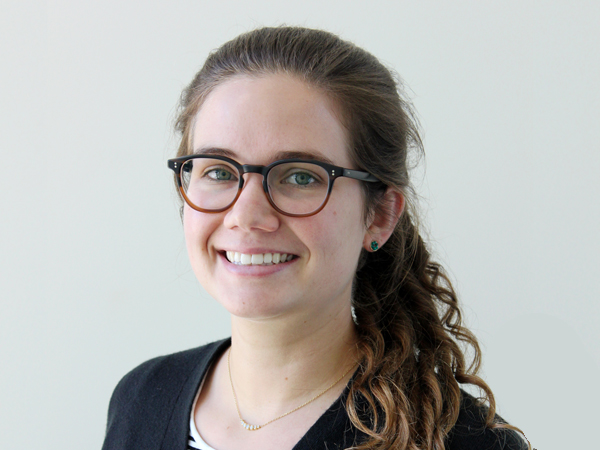
Penelope Strauss
Master of Public Health
Balancing family, work and study commitments
“I qualified as a pharmacist many years ago. I wanted to return to working within the health environment but not as a retail pharmacist.
I knew population health was an exciting field and I hoped it would offer me some interesting opportunities for a second career path. As such, I signed up to do a Graduate Certificate in Population Health Studies as it was possible to take on a limited number of units and I was able to pick and choose those units I would find most relevant.
I set out to do one unit per semester and compete it over a period of two years, but the convenience of having intensive units during the holidays meant I could balance my family-work-study commitments and complete the certificate after only one year.
I chose UWA because I wanted to be at the top-rated local university within the field. UWA has an exceptional school with highly regarded staff. UWA offers many opportunities to improve the skills that master’s units require. There were also talks on referencing, researching and scientific writing that I made an effort to attend. In some cases, I already knew what to do, but just needed to update my skills, and other times I was learning new skills from scratch. I did not need to buy any textbooks – I could access everything online and did take out a few reference books from the library.
One thing that really worked for me was to listen to the lecture recordings a little each day while I was driving to work and back. This meant that each week I would have a chance to hear the complete lecture a second time and that really helped cement the content for me. By the time exams came around, it was easier to revise because I had already made notes and re-listened to it all.”
Anne Haskis
Graduate Certificate in Population Health Studies
Responding to and detecting emerging animal diseases outbreaks
"I currently work in Agriculture Victoria (Animal health microbiology and Arbovirus Surveillance in Victoria). I take satisfaction in knowing that I contribute to clinical microbiology, in delivering quick turnover of results, contributing to public health, providing new diagnostic and research capabilities within my role. I find gratification in knowing that I can train new students coming through, to inspire them to better themselves, and their outcomes in their career.
In my current role as a Research Scientist within Agriculture Victoria, I’m thrown into new challenges, especially in scope of responding to Emerging Animal Diseases outbreak. I was part of the molecular diagnostic team that responded to the Avian influenza outbreak in Victoria in 2020, and the Abalone Herpesvirus outbreak in 2021.
One of my most significant contributions has been in the development and validation of rapid diagnostic tool (LAMP) for the in-field detection of African Swine Fever in Timor. Currently, we have secured support to be able to further develop diagnostic capabilities in Timor – and in turn contribute to betterment of Public Health."
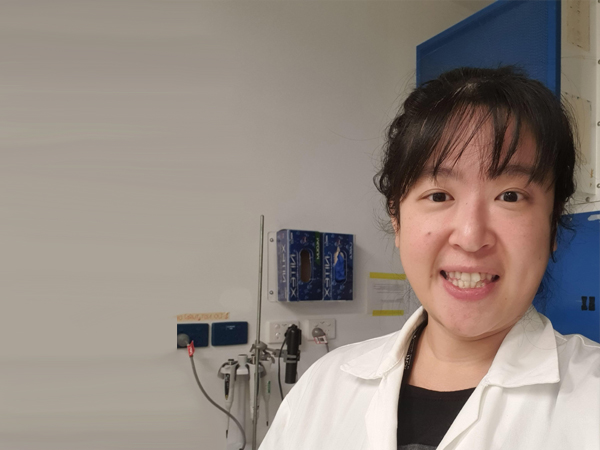
Shani Wong
Master of Infectious Diseases
Treating patients in regional Western Australia
“I was keen to pursue a postgraduate degree in the health and medical sciences field after my undergraduate degree.
I came across podiatry and it was fascinating to me. I researched courses offered by universities in various countries and chose UWA because it was close to home (Singapore) and the only university that offered podiatric medicine at postgraduate level in Australia.
Furthermore, I knew graduates from UWA podiatric medicine (via podiatry shadowing in Singapore’s public hospitals) and they highly recommended studies at UWA.
I am currently working as a podiatrist in the Wheatbelt region of WA. I took up the opportunity to explore the country and it has been an amazing decision. My job sees me drive to treat patients in 11 northern and eastern Wheatbelt towns, covering Northam to Moora to Westonia (3 hours from Perth). I am always on the move.
As one of the few podiatrists who works in the country, I am constantly exposed to various conditions, which includes high- risk cases. Often, I am challenged with difficult cases, which then requires me to fall back on the advice my professors imparted. The UWA professors did teach me well to go with best practice and they still do provide mentorship post-degree.
Overall, I can say that I have grown to become a better clinician in my first working year which can be attributed to the rigorous training I received at UWA."
Zuhairah Zulkiflee
Doctor of Podiatric Medicine (DPM)
Continuously learning and striving to make things better
“UWA not only gave me my first job after graduating from dentistry, but also set me up with a professional network of colleagues to help kickstart my career. I have since started working in private practice in Como, and still tutor students at the UWA Dental School on my days off.
I’m passionate about constant improvement. Whether it’s improving your education and your skills or helping improve other people’s quality of life and self-worth, always striving to make things better is important for us as a society and as individuals.
The most interesting aspect of my career is the amount that I learn on a daily basis. I’ve been lucky enough to surround myself with experienced dentists and mentors who are a wealth of knowledge and always surprise me with new things. I think the day that I stop being surprised and stop picking up new information will be the day that I seek extra qualifications and go back to study!
One piece of advice I would share with a first year student is; Put yourself out there – start conversations with strangers, ask questions in lectures, join a club or sporting team, become a student representative, volunteer your time. Your time at university is more about the journey than the end-point, and the classes and exams are only one small part of it, so make sure you immerse yourself and broaden your experience.”
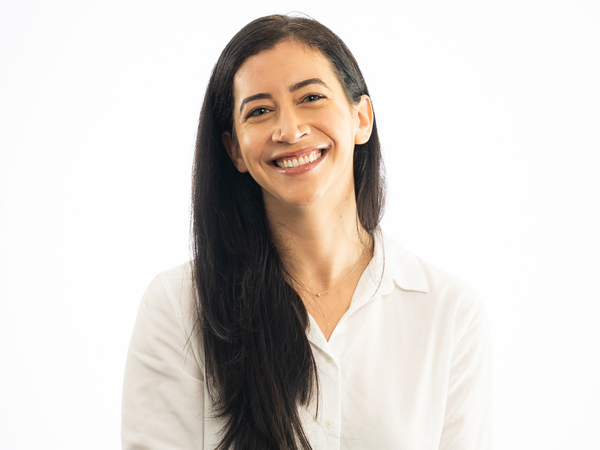
Rebecca Penco
Doctor of Dental Medicine (DMD)


